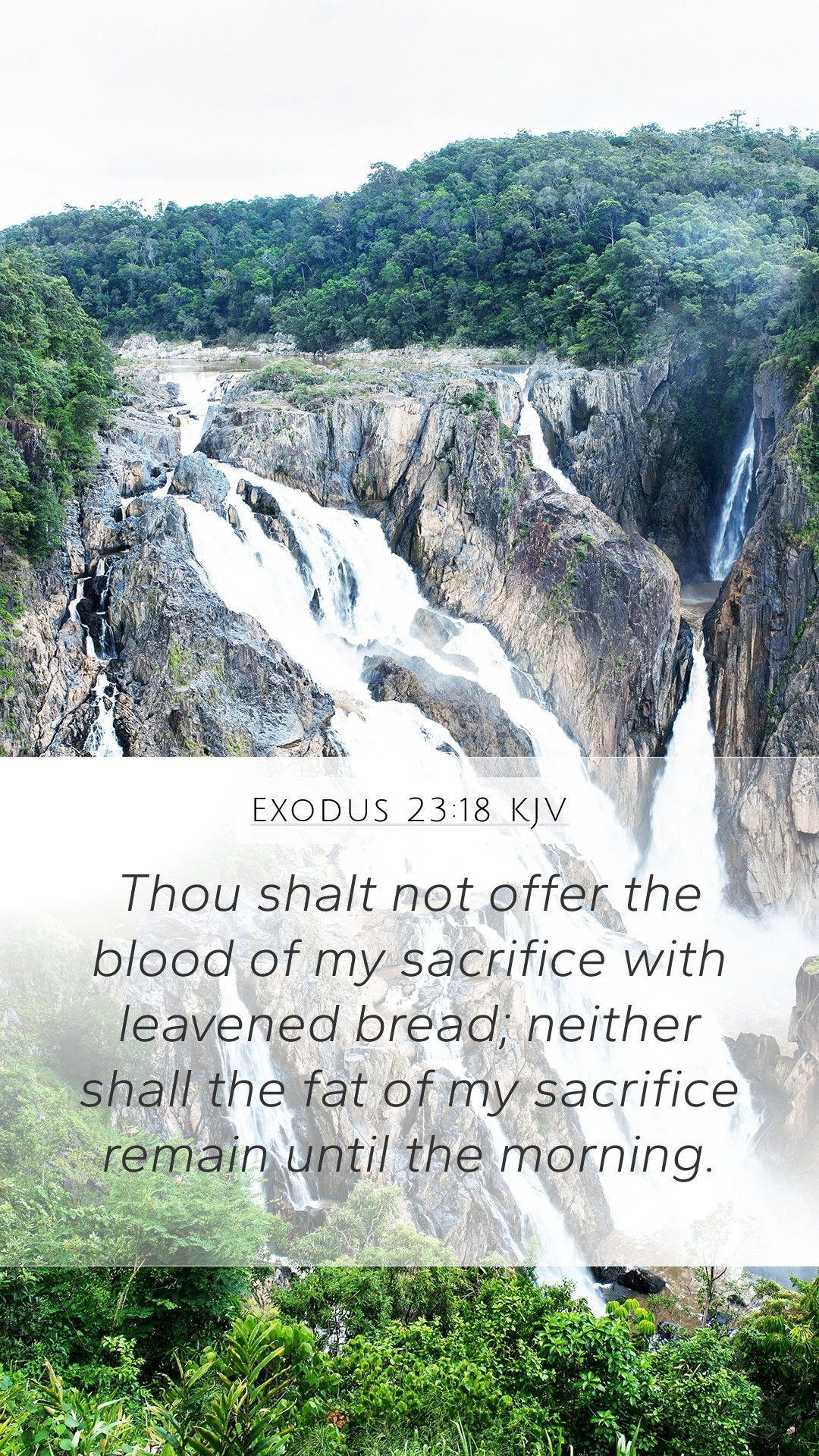Understanding Exodus 23:18
Bible Verse: Exodus 23:18 - "Thou shalt not offer the blood of my sacrifice with leavened bread; neither shall the fat of my sacrifice remain until the morning."
Introduction
The verse in Exodus 23:18 is crucial for understanding the sacrificial laws directed at the Israelites. Drawing insights from public domain commentaries such as those by Matthew Henry, Albert Barnes, and Adam Clarke provides a comprehensive explanation of this scripture.
Contextual Overview
Exodus 23 is part of the larger narrative of God's covenant with the Israelites, providing laws and guidelines that reflect His holiness and the need for proper worship. This verse specifically addresses the guidelines for sacrifices, emphasizing purity and reverence before God.
Meaning and Interpretation
The key elements of Exodus 23:18 revolve around the prohibition of mixing leaven with the blood of sacrifices and the directive concerning the fat of sacrifices. Here is a breakdown of the insights offered by the commentaries:
-
Matthew Henry's Commentary:
Henry emphasizes the notion of purity in the offerings to God. The prohibition of leaven symbolizes sin and corruption, indicating that the offerings made to God must be free from impurity. This foregrounds the importance of excluding anything that represents decay or bad influences during worship.
-
Albert Barnes' Notes:
Barnes focuses on the act of offering and its timing. The instruction that "the fat of my sacrifice remain until the morning" underscores the importance of consuming the offering in a timely manner. This indicates a demand for respect and immediacy in honoring God through sacrifices.
-
Adam Clarke's Commentary:
Clarke digs deeper into the ritual implications of this verse. He notes that leaven is often associated with the passage of time and decay, which corrupts. Offering blood with leaven could mean defiling what is meant for God. Clarke points out that the timing of sacrifices directs the worshiper's attitude toward reverence and devotion.
Key Themes
This verse encapsulates several important themes within Biblical understanding and study:
- Purity in Worship: The requirement of excluding leaven highlights the need for holiness in our offering and the way we approach God.
- Reflection of Spiritual Condition: The act of sacrifice is a reflection of the heart's posture towards God; thus, it is significant that believers address their motivations.
- Timeliness of Obedience: The emphasis on timely sacrifices reminds us to honor God promptly; procrastination in worship may lead to negligence and disrespect.
Application to Daily Life
This verse has profound implications for believers today:
- Consider how you approach God in your prayers and offerings. Are you worshiping with a pure heart, free from sin and decay?
- Reflect on the timeliness of your devotion. Are you making time for God in your life, or delaying your worship?
- Embrace the principle of keeping your spiritual life free from influences that could corrupt your relationship with God.
Cross References
Exodus 23:18 is related to several other biblical passages that reinforce its themes:
- Exodus 12:15 - Speaking about the removal of leaven.
- Leviticus 3:17 - Instructions regarding the fat of sacrifices.
- 1 Corinthians 5:6-8 - Addressing the nature of leaven and sin in the Church.
Conclusion
Exodus 23:18 serves as a vital component in understanding the nature of worship and sacrifice in the Biblical context. By analyzing this scripture through various commentaries, we see a layered meaning that invites deeper reflection on the nature of our relationship with God. The insights gathered allow for a greater appreciation of holiness in worship, timeliness in obedience, and the necessity of purity in our spiritual endeavors.


